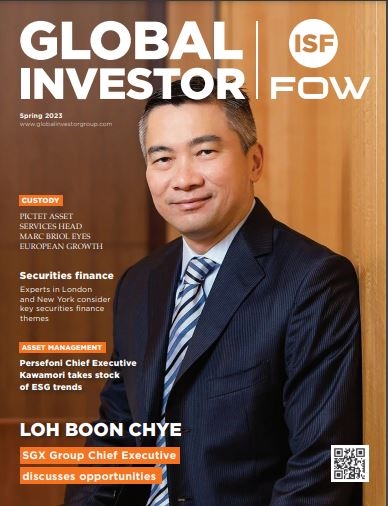Mizuho Bank: The power of outsiders
Promoting from within
The number of outside, or independent, directors – those not currently employed by the company on whose board they serve – of Japanese companies is far fewer than that of US companies. According to consultancy Spencer Stuart, in 2013 60% of S&P 500 constituents had the CEO as the sole inside, or non-independent, director and 84% of all directors were independent.
By contrast, the Japan Association of Corporate Directors reports that outsiders account for only 13.5% of directors generally and a mere 2.6% of companies listed in the First Section of the Tokyo Stock Exchange (TSE) have an outsidermajority board.
So, why are there so few outside directors in Japan? The backdrop is the country’s rather unusual human resources strategy. Directors of Japanese companies are traditionally promoted from within – they are often chosen from the employees. One of the advantages of this promoted-fromwithin type of director appointment lies in the guaranteed in-depth knowledge of the business and industry that inside directors have.
Another advantage is the extremely careful and lengthy selection process. Under the “lifetime employment” system, the candidates for directors are screened out by various criteria, including performance and personality throughout their several decades of service as employees.
Nippon Keidanren, Japan’s biggest and best-known business lobby, with more than 1,600 member companies mainly listed on the TSE First Section, emphasises such advantages of internal directors. In its policy proposal on corporate governance published in 2009, Keidanren pointed out that the ability of the board of directors appropriately to oversee the corporate executives hinges more on the quality of directors than on the number of outside directors.
On the other hand, potential disadvantages of using such a system to select directors also exist. Inside directors often face conflict of interests due to their inherently strong ties with the company management and so have difficulty in conducting fair, objective and shareholder-minded monitoring of the operation and management of the company. Weak governance may result in low efficiency and can lead to scandals, such as the Olympus debacle in extreme cases.
The average return on equity (ROE) of the companies listed on the TSE First Section remains below 9% in 2013, which is far lower than the level of the US (22%) and Europe (15%), according to Nikkei Shimbun, Japan’s leading financial daily.
Lower ROE is making Japanese equities less attractive for investors, and such figures drive Shinzo Abe, prime minister of Japan, towards corporate governance designed to achieve sustainable growth of the Japanese economy by attracting foreign investors. In fact, a study of Japan Exchange Group in 2013 revealed a positive correlation between the ratio of outside directors and ROE.
In fiscal year 2012, the average ROE of a company with an outsider-majority board (12.75%) was more than 10 times that of companies with an insider super-majority board (1.17%).
The idea of increasing the number of outside directors to achieve better governance has long been common in international business. OECD Principles of Corporate Governance 2004 Edition required boards to consider assigning a sufficient number of non-executive board members capable of exercising independent judgment. The listing rules of the New York Stock Exchange stipulate that listed companies must have a majority of independent directors in its corporate governance rules.
In Japan, a proposal to amend the Companies Act to require the appointment of outside directors finally came out in 2009. However, it stayed up in the air for several years. The first big question raised was whether an outsider – meaning an amateur not familiar with the businesses of the company – could function properly, including monitoring corporate activities and giving appropriate advice.
Moreover, some argued outside directors could be just a group of publicly famous, but not capable, friends of inside directors. Keidanren proposed its own principles for corporate governance, negating the idea of mandatory appointment of outside directors by highlighting the lack of empirical analysis and factual evidence to show appointment of an outside director actually enhanced corporate governance.
Comply or explain
Approximately four years after the initial proposal to bring in outside directors to corporate boards, the Cabinet reached a consensus in November 2013, and approved a bill to amend the Companies Act under the Abe administration.
The bill was approved by the Diet on June 20 and will come into force in April 2015. The bill did not include the mandatory appointment of at least one outside director, but stipulated that the issue of whether to require the appointment of an outside director was to be revisited by lawmakers in two years.
The law takes a “comply or explain” approach similar to that of the London Stock Exchange regulation, requiring the explanation at the AGM of the reasons the company considers that the appointment of an outside director is inappropriate, if no outside director is on the board. This approach presumes that an outside director should be appointed as the general rule.
Under this approach, the explanation that the company will not appoint an outside director is not acceptable, thus excuses such as lack of budget, lack of a candidate or existence of multiple outside auditors are all invalid.
Following the Cabinet’s move, TSE amended its listing rule to require listed companies to “endeavour” to appoint at least one outside director with sufficient independence, effective on February 10 2014. As a result of this change of the listing rule, coupled with the amendment of the Companies Act, having an outside director is likely to become a market norm. As of the end of June, 74% of the companies listed on the TSE First Section have appointed at least one outside director, according to the TSE.
Stewardship responsibilities
How substantial companies appoint external auditors, and who they appoint, is arguably another key to success of the corporate governance reform. In Japan, cross-shareholdings have been common, where shareholders traditionally tend to be silent, resulting in the virtually automatic approval of the outside directors selected by the corporate executives, who are supposed to be checked by those outside directors.
As a countermeasure, the Financial Services Agency of Japan (JFSA) set a Japanese version of Stewardship Code as another pillar of the reform. The code is not a legally binding regulation, but a set of principles that also follow the comply-or-explain approach. Institutional investors are given the flexibility of choosing not to comply with the principle by explaining the reason they consider any principle of the code unsuitable for them.
The idea behind the code is to regain healthy tension between shareholders and companies, requiring institutional investors to fulfil their stewardship responsibilities to their clients and beneficiaries, for the enhancement of long-term returns for their clients by fostering the investee companies’ corporate value through constructive engagement or purposeful dialogue.
The code may also help the outside directors function properly, as is the intention of the statute, through active communication with investors. According to the JFSA, the vast majority of institutional investors in Japan had accepted the code by the end of May 2014.
Pressure also comes from another direction. Even before the introduction of the code, the guidelines published by major proxy advisers, such as ISS, had significant influence over the voting decisions of institutional investors. For example, ISS guidelines recommended investors vote against the election of the top executive if the board did not include at least one outside director after the shareholder meeting.
Arguably as a result, Fujio Mitarai, CEO of Canon and ex-chairman of Keidanren, received only 72.21% of supporting votes for the CEO appointment. Although Canon had been against the mandatory appointment of outside directors, it nominated two outside directors at the AGM in March 2014, and 90% of shareholders supported the appointment of Mitarai as CEO.
One is not enough
Getting one director on the board may just be a starter, because standalone outside directors cannot be a panacea. In May this year, 20 institutional investors, including Calpers, Baillie Gifford and the Ontario Teachers’ Pension Plan, jointly sent a letter to 33 Japanese listed companies requesting them to increase the number of directors. Those investors hold ¥7.5trn in Japanese equities, close to 2% of the total market capitalisation of the TSE First Section.
The target companies, including Toyota Motor and Mitsubishi UFJ Financial Group, were picked based on the market cap and outside director ratio. Mizuho Financial Group this year made a bold change to its board, of a severity not common for Japanese companies, having appointed three new outside directors including chairman, which made six outside directors in total.
Globally, strong corporate governance is considered to be a system supporting the sustainable growth of companies by attracting stable long-term investment capital. The Abe Cabinet is ready to take another step ahead by putting the corporate governance code on the table for discussion to revitalise Japan.
Found this useful?
Take a complimentary trial of the FOW Marketing Intelligence Platform – the comprehensive source of news and analysis across the buy- and sell- side.
Gain access to:
- A single source of in-depth news, insight and analysis across Asset Management, Securities Finance, Custody, Fund Services and Derivatives
- Our interactive database, optimized to enable you to summarise data and build graphs outlining market activity
- Exclusive whitepapers, supplements and industry analysis curated and published by Futures & Options World
- Breaking news, daily and weekly alerts on the markets most relevant to you



